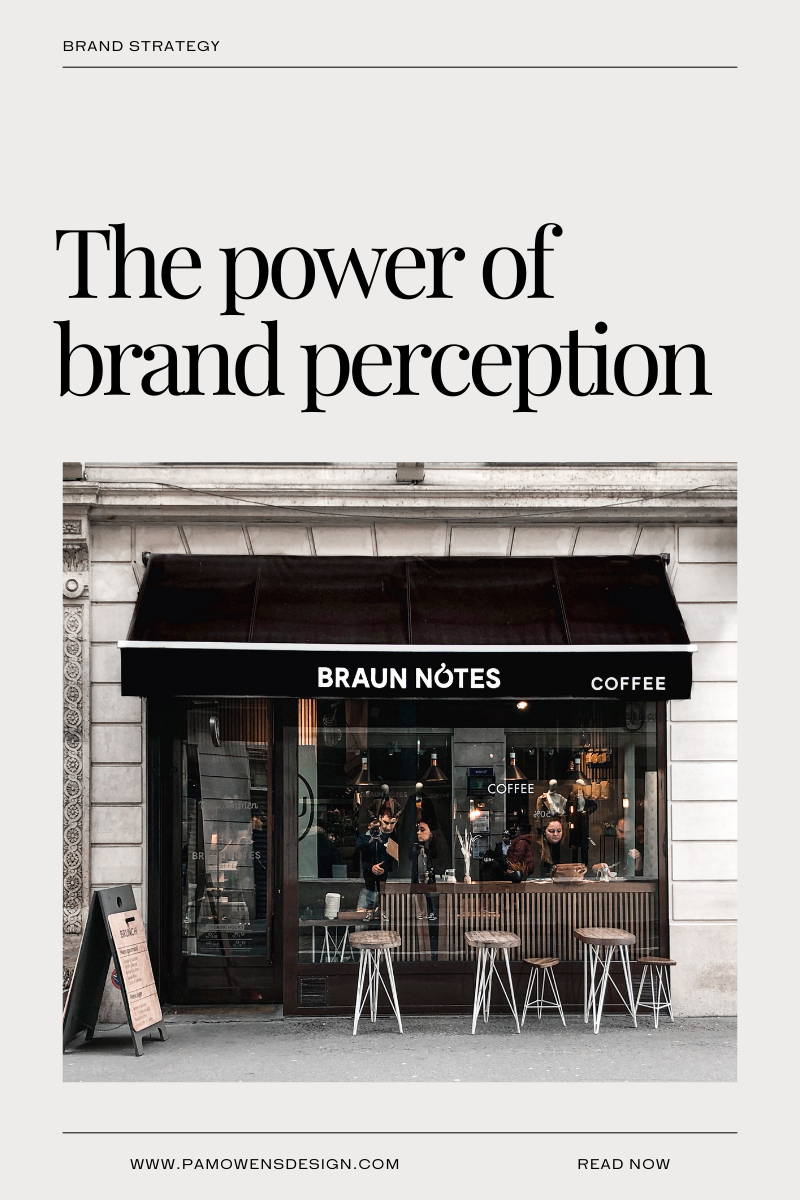As a small independent business owner, you may often find yourself competing with larger, more established companies for clients. While this can seem daunting, the good news is that you don’t need a big budget to stand out. What you need is a powerful brand perception. This can be the key to attracting high-value clients who not only appreciate your expertise but are willing to pay a premium for it. In this blog post, we’ll explore the importance of brand perception and how you can use your brand narrative to shape it effectively.
What is brand perception?
Brand perception is how your brand is viewed by your audience. It encompasses the emotions, attitudes, and impressions people have when they think about your business. Essentially, it’s the sum of everything your brand communicates, both consciously and unconsciously. Unlike brand identity, which you control, brand perception is shaped by the public’s response to your brand identity.
Why is brand perception important?
The perception of your brand can make or break your business. When clients perceive your brand as valuable, trustworthy, and expert, they are more likely to see you as a worthwhile investment. This is particularly crucial if you’re targeting high-value clients who are discerning and willing to pay for quality and expertise. They’re not just buying a product or service; they’re buying into the experience and reputation that your brand offers.
Consider the example of luxury brands like Louis Vuitton or Apple. These companies don’t just sell products; they sell a lifestyle and status. Customers are willing to pay a premium because they perceive these brands as symbols of quality and prestige. While your small business may not be a global luxury brand, you can still cultivate a strong, positive perception that resonates with your target audience.
The role of brand narrative
Your brand narrative is the story your brand tells the world. It’s more than just your history or mission statement; it’s the emotional and philosophical backbone of your business. A compelling brand narrative can be a powerful tool for altering brand perception, particularly when it comes to attracting high-value clients.
For example, if you’re a small organic skincare company, your brand narrative might focus on the ethical sourcing of ingredients, the benefits of natural skincare, and the personalized customer service you offer. This story sets you apart from big-box retailers and positions you as a specialist in your niche. When customers hear this narrative, they’re not just buying a skincare product; they’re investing in a brand that aligns with their values and lifestyle.
By crafting a compelling brand narrative and consistently aligning all aspects of your brand with this story, you can shape how your business is perceived in the market. Remember, in the eyes of the client, perception is reality. So, take control of your brand perception today and start attracting the clients who value what you bring to the table.
The power of brand perception

grab this guide »
- How to attract and book the right clients
- Ways to refine your messaging and stand out
- Strategies to position your brand as the go-to choice
- Simple website tweaks to boost conversions
- How to make your brand work for you